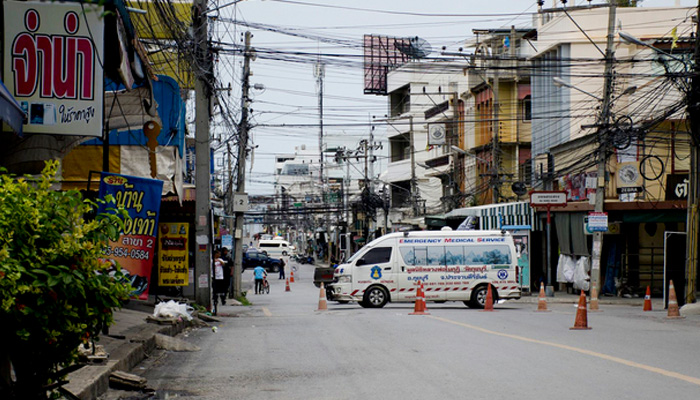-
Tips for becoming a good boxer - November 6, 2020
-
7 expert tips for making your hens night a memorable one - November 6, 2020
-
5 reasons to host your Christmas party on a cruise boat - November 6, 2020
-
What to do when you’re charged with a crime - November 6, 2020
-
Should you get one or multiple dogs? Here’s all you need to know - November 3, 2020
-
A Guide: How to Build Your Very Own Magic Mirror - February 14, 2019
-
Our Top Inspirational Baseball Stars - November 24, 2018
-
Five Tech Tools That Will Help You Turn Your Blog into a Business - November 24, 2018
-
How to Indulge on Vacation without Expanding Your Waist - November 9, 2018
-
5 Strategies for Businesses to Appeal to Today’s Increasingly Mobile-Crazed Customers - November 9, 2018
Thailand’s Military Court Issues Arrest Warrant for Second Suspect Over Deadly Bombings
The latest explosions happened just days after a series of bombings on Thursday and Friday, which killed four people and wounded 35 others, including tourists.
Advertisement
Jersey-born Mark Bisson said that people were now anxious that there would be further attacks and that tourism would be affected after five tourist towns across Thailand were targeted.
The fatalities came from bombs in Hua Hin, 200 kilometers (120 miles) south of Bangkok, and the cities of Surat Thani and Trang, farther south. More than 30 people were injured, including 10 foreign tourists from Germany, Italy, the Netherlands and Austria.
The attackers appear to have been divided into two groups, one which planted and detonated the bombs and one which set fire to five separate shopping centres, causing millions of dollars damage.
Thai media reported that two more bombs suspected of being connected to the coordinated attacks last week were found in separate locations in Phuket and Hua Hin on Sunday afternoon.
Analysts say suspicion would inevitably on fall on enemies of the ruling junta beaten in the referendum or insurgents from Muslim-majority provinces in the south of the mostly Buddhist country.
Thailand’s deputy national police chief on Sunday said the attacks were carried out simultaneously by one group on the orders of one person, but gave no further details.
Thai authorities also revealed that two small bombs were defused at Patong Beach on the island of Phuket.
The anti-government United Front For Democracy Against Dictatorship (UDD), known as the “red shirt” group and sympathetic to the Shinawatras, condemned the attacks in a statement on Sunday.
Speaking at a Saturday event to promote Thai products and handicrafts, Prime Minister Prayuth Chan-ocha assured reporters that he was dealing with the situation.
Muslim rebels are also waging a long-running armed struggle in Thailand’s southern tip. Self-exiled ex-premier and de facto Peua Thai leader Thaksin Shinawatra, meanwhile, has threatened to sue for defamation anyone who accuses him of masterminding the anonymous assaults.
Critics say the referendum was a sham because the military restricted open discussion and jailed more than 100 people who criticised it.
However, a recent vote for a new military-drafted constitution, within the context of floundering peace talks with the separatists in the south, could have acted as a catalyst for more audacious attacks Anders Engvall, a research fellow at the Stockholm School of Economics, told Al Jazeera.
The military seized power from the Pheu Thai government of Prime Minister Yingluck Shinawatra in May 2014.
Advertisement
The violence is the worst since a bomb exploded at the Erawan shrine in central Bangkok in August 2015, killing 20 people and injuring 125 others. Most recently, in 2010, it was called on by the unelected Democrat Party government to brutally suppress Red Shirt protesters, predominantly drawn from the urban and rural poor, who called for fresh elections.





























